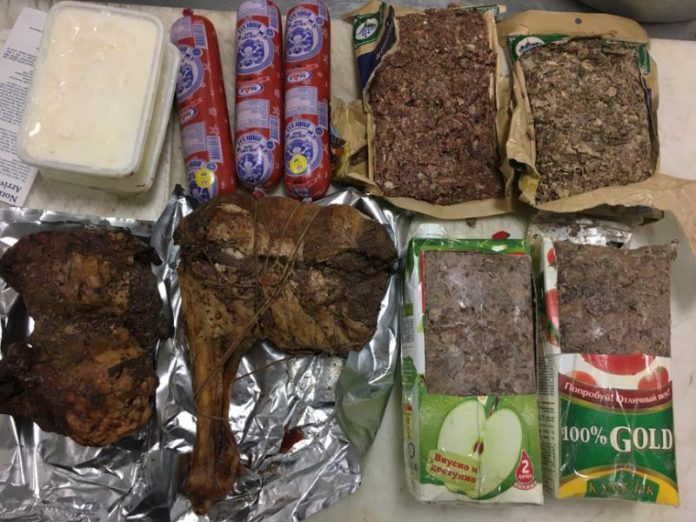
STERLING, Va. — U.S. Customs and Border Protection agriculture specialists have seen some really unusual things in traveler baggage at Washington Dulles International Airport over the years. From charred full monkeys, to voodoo ceremony tools, to cocaine concealed inside the cavity of fully cooked chickens, to live sea horses and giant African land snails. So it seems that after a while, the oddity is not so odd anymore.
Then two women arrived from Mongolia on January 29 with horsemeat concealed inside juice boxes, including 13 pounds of horse genitals that one woman claimed were for medicinal purposes.
After they deplaned, CBP officers referred the women for a routine agriculture examination. There, CBP agriculture specialists discovered a combined 42 pounds of meat described as horsemeat and other ruminant meat, including 13 pounds of horse genitals, and three liters of yak milk.
Horsemeat is prohibited from entering the United States if it is not accompanied by an official government horsemeat certification from the country or government it originates. Otherwise, CBP treats it as unknown ruminant meat and seizes it due to fears of foot and mouth disease. Horsemeat from Mongolia is prohibited due to concerns of introducing animal diseases to U.S. livestock industries.
“Customs and Border Protection takes no pleasure in seizing and destroying travelers’ food products,” said Wayne Biondi, CBP Port Director for the Area Port of Washington Dulles. “We’re in the business of protecting America’s agriculture industries, like the livestock industry, from the potential introduction of animal diseases posed by these unpermitted food products.”
CBP incinerated all food products.
Neither woman was criminally charged. CBP officers released them to continue their visit.
Often travelers bring with them food products from their countries that is normal to their cultures; however, some items are prohibited from the United States and CBP will seize those products upon arrival.

